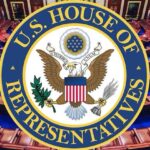Washington, D.C., November 2025 – The United States has recently disbursed funds in foreign aid to Nigeria, making Africa’s most populous country the third-largest recipient of U.S. assistance in Sub-Saharan Africa for the 2025 fiscal year.
According to new figures from the U.S. Foreign Assistance database for September 2025, Ethiopia topped the list with $617.35 million, followed closely by Congo at $571.35 million, and Nigeria $516.69 million in third place. Other major beneficiaries include Sudan ($514.55m), Kenya ($402.84m), and Somalia ($402.57m).
The 20 leading African recipients together account for billions of dollars in American aid targeted at humanitarian relief, health programs, governance reforms, education, and security assistance. U.S. officials have said that the funds reflect Washington’s continued commitment to “a stable, prosperous, and democratic Africa.”
Nigeria’s Position and Security Context
Nigeria’s share of the funding is largely directed toward counter-terrorism, democracy strengthening, public health, and food security programs. With insurgency and banditry still plaguing the northern regions, U.S. engagement has been seen as critical to bolstering stability in the Sahel corridor.
Washington’s involvement in Nigeria’s security sector continues to expand through training, intelligence sharing, and equipment support under bilateral frameworks such as the U.S.A – Nigeria Binational Commission and the Trans-Sahara Counterterrorism Partnership.
US Aid vs. China’s Loan Diplomacy
Unlike the United States, which provides significant grant-based aid, China’s financial relationship with African nations including Nigeria is largely built on infrastructure loans and commercial investments. Beijing’s approach emphasizes large-scale construction projects financed by concessional or semi-commercial loans rather than direct aid transfers.
Critics have long debated the long-term implications of these loans, warning of potential debt vulnerabilities and weak oversight of extractive industries. Analysts note that while U.S. aid is often tied to governance and transparency reforms, China’s model prioritizes resource-for-infrastructure deals.
Geopolitical Competition and Calls for Global Support
Observers say Africa’s growing importance in global geopolitics has intensified competition among major powers. With the United States reaffirming its presence through aid and diplomatic engagement, and China expanding through trade and financing, Nigeria stands at the crossroads of two contrasting development philosophies.
Analysts argue that international partners — whether from Washington, Beijing, or elsewhere have a legitimate role to play in supporting Nigeria’s security and economic stability, provided such involvement respects the nation’s sovereignty and aligns with regional cooperation goals.
The Bigger Picture
Overall, the latest U.S. disbursement underscores a renewed strategic focus on Sub-Saharan Africa, where conflict, climate change, and economic instability remain pressing concerns. As the region continues to attract both aid and investment from global powers, Nigeria’s ability to balance external partnerships may determine its long-term path toward sustainable development and peace.


